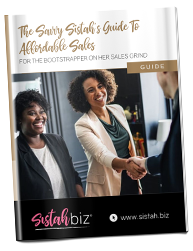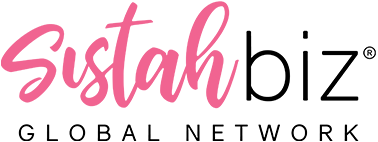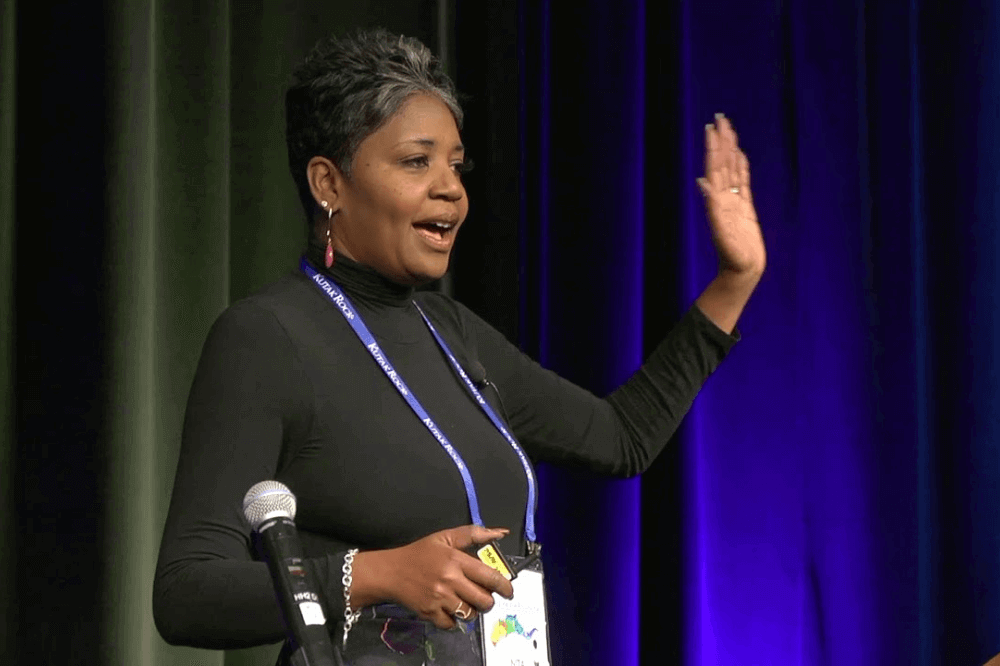Dr. Nita Mosby-Tyler is our black woman entrepreneur spotlight for this month and the SHE-eo of two companies. Her first company, the Equity Project, is an organization designed to support organizations and communities in building diversity, equity and inclusion strategies. She is nationally recognized for her equity work with non-profit, community, government and for-profit organizations. She also recently launched The HR Shop – when she realized that her clients often needed support with human capital strategy. Oh yeah, during all that spare time she has after running two businesses each day, Dr. Mosby Tyler serves as First Lady of Shorter A.M.E. in Denver, Colorado and is a fierce advocate for marginalized and underserved communities. We love her cool, calm, polished version of fierce, and we’re excited to share her words of wisdom from our interview with her.
What’s the #1 piece of advice you have for black women starting new businesses?
It is important to not only do what you love, but to monitor and understand the landscape to make sure that what you love is actually a legitimate need or demand by the public. The reality is, no matter how much you personally love your craft, if no one is willing to pay for it, you have no business. This reality check is tough, but a necessary part of creating a sustainable, revenue-generating business.
How did you acquire the necessary capital required to scale your business and get to this level?
I was blessed to have been able to start my businesses with my own funds. That happened because I began putting away money while I was still working for my last employer. Instead of spending that bonus check or that annual increase, I put it away for what I knew my destiny was calling me to do. When I decided to launch my businesses – The Equity Project and The HR Shop – I at least had enough seed money to secure office space, pay contractors, etc.
What is a strategy (or two) that you use to ensure that you meet your annual goals?
Establish the percent growth that you’d like to see in your client base year over year. At the beginning of Year One, I said I wanted to grow by 20% in the second year. We have exceeded the goal and have grown by over 50%.
Create a reasonable financial goal. I, too, want to be a millionaire, but that wasn’t a reasonable Year One goal. My financial goal takes into account any investments that I still need to make in the infrastructure of my businesses. I use Quickbooks for my financials and their dashboards really help me to easily see if there is a good trajectory towards my goals.
Has your product/service gone through iterations and changes? What was your strategy for learning from customers and improving the product?
My services as a consultant have evolved over the past 1.5 years. Our complicated socio-political climate make the topics of diversity, equity and inclusion prominent and I jumped into entrepreneurship right at the time that our country was most conflicted about these topics. It accelerated my business and catapulted me into national work quickly. I believe timing is everything. I also believe you have to listen to what customers are saying…and what they are not saying. I don’t take for granted the fact that customers can go anywhere they please. For every great thing I offer, someone else offers a great thing too. I ask questions, I check in and I challenge myself by always entering uncomfortable spaces. The minute you only do the things you know how to do (instead of the things you NEED to know how to do), you chip away at the effectiveness of your business.
How do you recharge and restore and how often?
My husband and I get on a morning flight to Los Angeles equipped with our lawn chairs. We head to Venice Beach. We sit there all day long and then we jump on a flight that same night to come back home. It sounds wild, but a day trip to sit and relax at the ocean is one of the best feelings in the world. The flights are typically inexpensive and all you need is your flip flops and your lawn chair! Head to the beach at 6 am. Head back home at 7 pm. Priceless!
What is your morning routine?
As much as I have a very public professional life, I love solitude. My husband is a pastor, so we normally start our day with prayer. I also like office solitude. When I can, I like to get to the office before my team arrives. It gives me time to sit in the space I created, giving thanks for the opportunity. I use the time to give thanks for every team member, every client, every square foot of my office space, every stapler, every ink pen and even every challenge. It is an important routine for me to remember that my business is a blessing.
Tell us about your first big deal and how you achieved it? (This can be a retail distribution deal, large-scale contract, sponsorship or funding round)
My very first contract was a Colorado statewide equity project. It involved helping over 180 school districts across the state advance health equity within their systems. This was a major first project for me and I was awarded the contract via an RFP process. I achieved this by being very thoughtful about articulating how I could help. I didn’t over-promise and I didn’t pretend that I was something that I wasn’t. In many ways, I learned how to be a business by actually working with this client. The complexity of the project forced me to quickly look at my infrastructure requirements, so I built the company fast to accommodate what the client would need.
If you can share one message to inspire black women in business, what would it be?
I would encourage Black women to use everything they’ve learned along the way to build and fortify their businesses. The goal is not to duplicate someone else’s strategy. The goal is to take learnings from your journey to architect a space that will bring you joy. If what you created is no different than where you used to work, then you have not designed with the authentic you in mind. Joy is, in fact, a key criterion for this. Entrepreneurship is not an escape hatch; it is a joy-maker. You just get to make money doing it.
What area of your business did you have the least experience in when you started? How did you handle the learning curve and ensure the business succeeded in that area?
I had absolutely no experience in the financial infrastructure areas. Because I started out with only working with contractors, I didn’t know what it would take to actually create employees in my company. Tax ID numbers, withholding schedules, payroll companies, etc. were all new to me. It was a little bumpy, but I learned along the way. The benefit that I have had are good vendors and brokers who have helped me along the way. I now have employees, benefit plans and feel good about the impact these infrastructure changes have had on the lives of others.
What advice do you have for women trying to cross cultural lines to grow their business? Can you speak to this from both a race and class perspective?
As a Black woman I am intimately aware of how difficult it is for us to be seen as credible (in general). Biases about our Black skin can influence how legitimate people think our businesses or even our expertise is. My focus has been on how to situate my business so it speaks for itself. I know how I personally judge credibility in other businesses and I use that as my lens for how I present my business to others. What your materials look like matters. How you present matters. Depending on the business, having a location people can come to matters. Testimonials matter. Where you show up matters. Where you don’t need to show up matters. How often you appear or are recognized as credible matters. All of these are implicit or explicit ways that people quickly decide if you are a legitimate business. Not fair…but true. The goal is to do all we can to craft a business and a business model that looks and feels sophisticated and experienced. Clients will need that along with your expertise or product. One doesn’t work without the other.
How have relationships impacted your business? What advice would you give entrepreneurs about how to manage business relationships? What relationship skills are most important for business success?
Relationships matter. When you focus on building relationships, your missteps (which will happen) will be tolerated more easily by the client. In my line of work, there are great many sensitivities around how people feel and internalize words like diversity or equity. My goal is to always reassure my clients that I will be a guide for them through this complicated work. It has eased anxiety and created a client list that I am most proud of. My advice is to turn off your sales hat long enough to build your relationships. If clients/potential clients think all they represent is a sale, you lose credibility. As with any other relationship, people have to trust you before they make the next move. Oftentimes, I tell people what I do and why it is important in the world and then I give them a chance to weigh in on what they think about my opinion about the importance of the work. It creates an immediate buy-in when the potential client can actually see themselves in what you’re describing…and they arrived there without you doing a sales pitch.
Can you tell us about a great failure or disappointment that you learned or benefited greatly from in your business?
My greatest failure was launching my second business without having the personal capacity to be involved in the day-to-day operations of it; because I was running the first business! What I learned was how important it is, in this scenario, to build a unique structure of operations that works with an absentee CEO. It is possible. However, if you build the company in the traditional structure that requires involvement of the leader at every step, there is a disconnect. My goal, now, is to rework what I’ve built to include a more non-traditional leadership model that allows me to work a strategic level in the oversight of the business. I will develop an oversight model without having to be a part of day-to-day details.

Finally, Affordable Sales Techniques!
Download your free guide to affordable and practical ways to bring in more customers.
Sistahbiz Global Network © 2024 | Privacy Policy | Denver, CO 80249 |
Contact us at [email protected].

